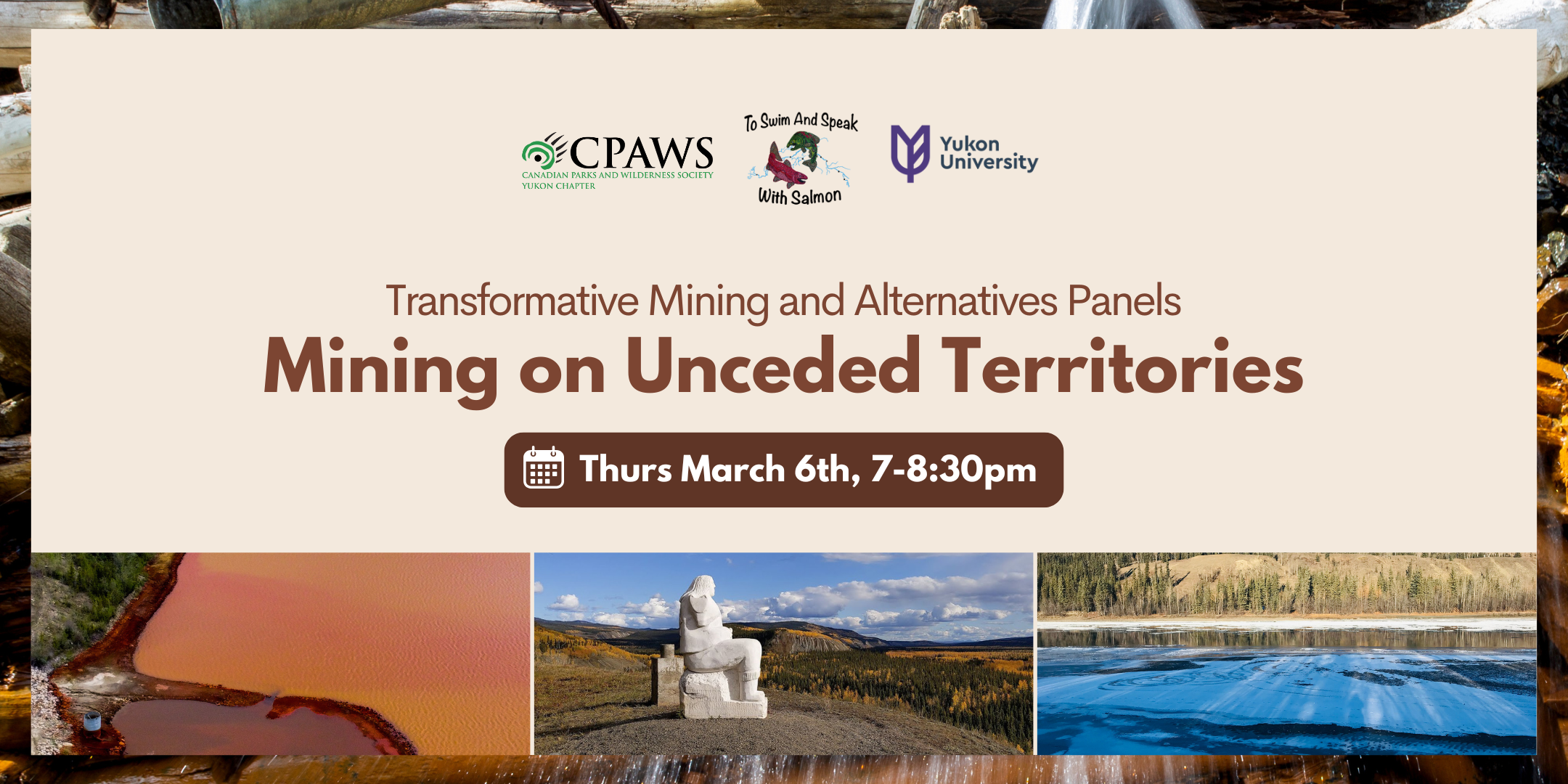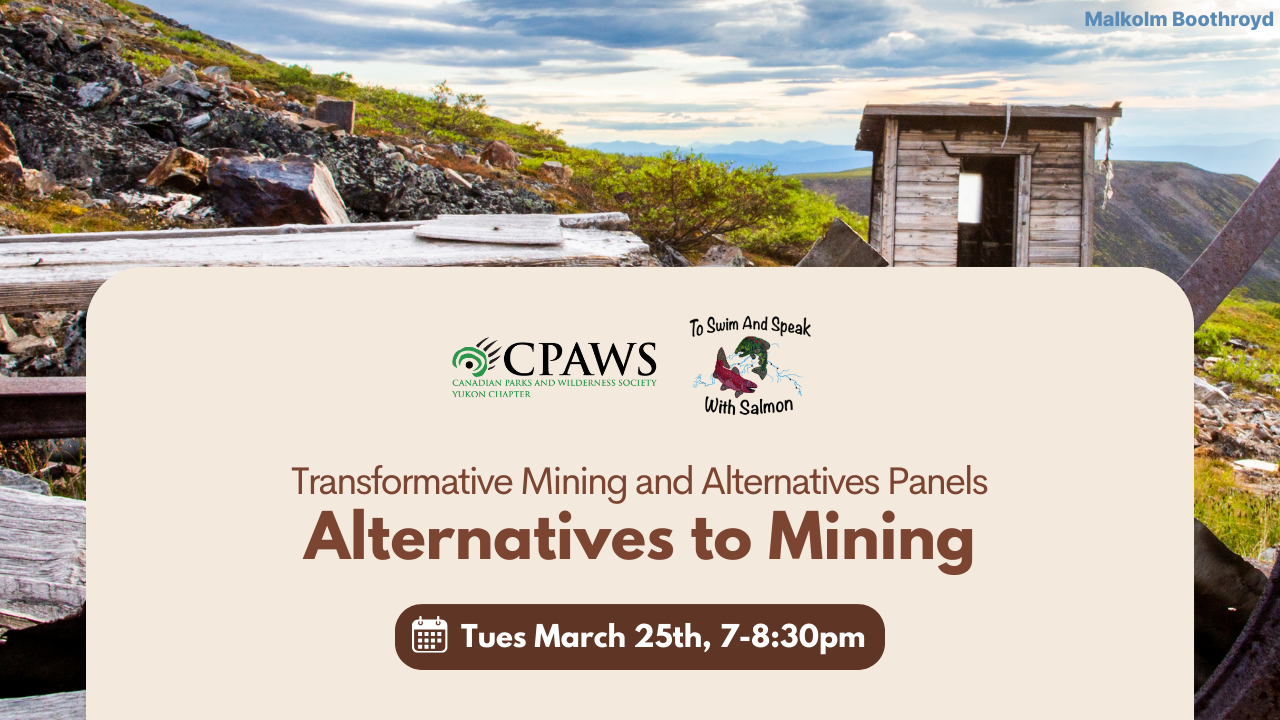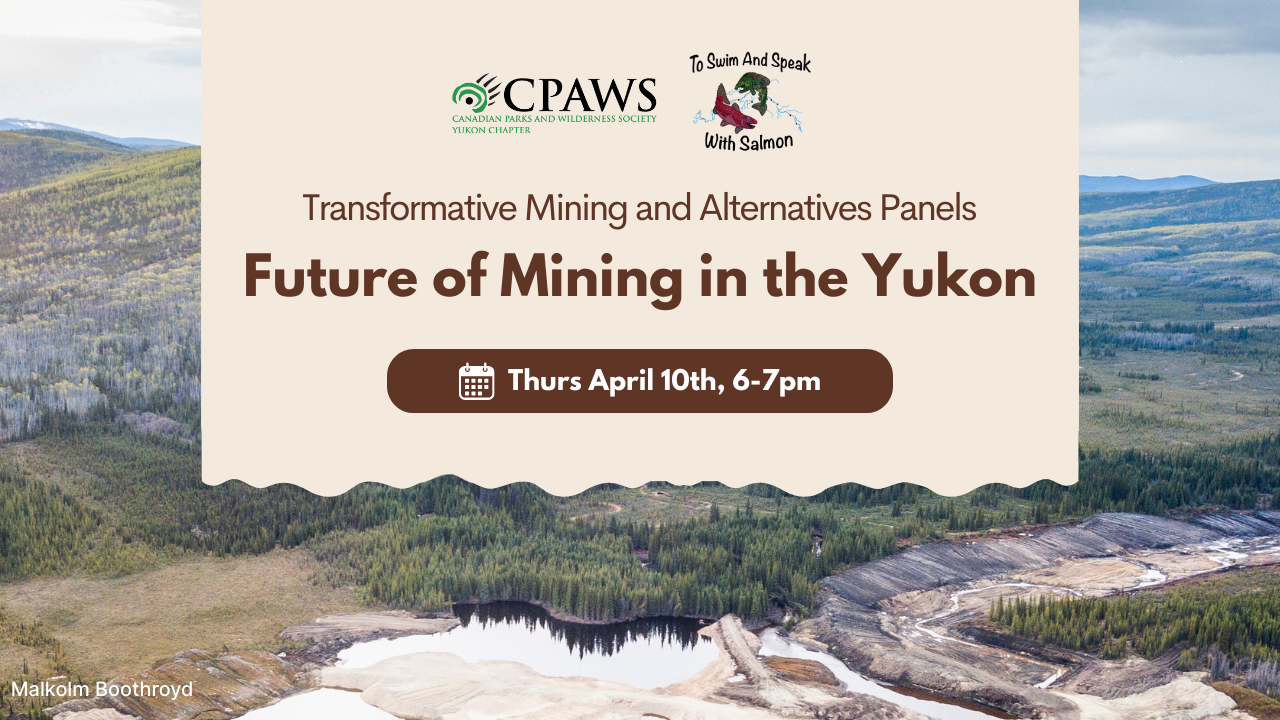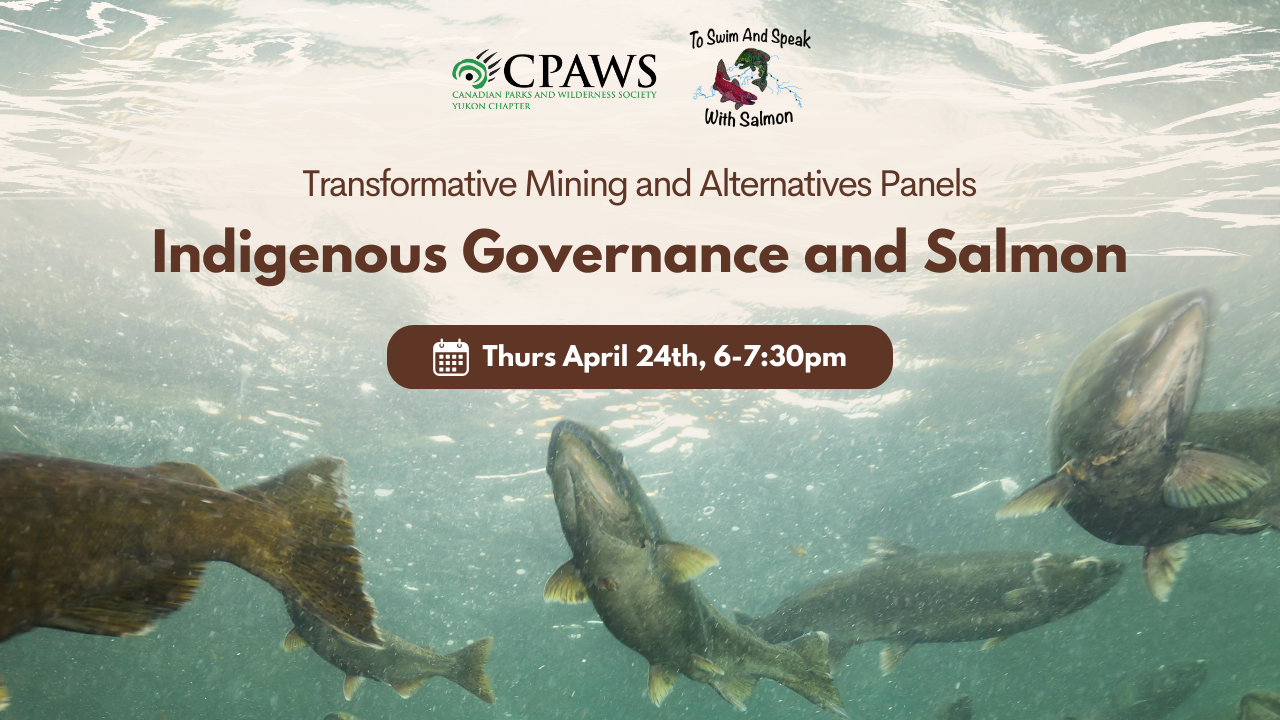Indigenous Governance and Salmon
Transformative Mining and Alternatives Panel
The fourth and final panel on mining in the Yukon, focused on how salmon advocacy, governance, and relationships intersect with extractive industries.
This panel was held on April 24th, 2025 with panelists Dawna Hope (Chief, First Nation of Na-Cho Nyäk Dun), Nicole Rondeau (former Chief, Little Salmon Carmacks First Nation), and Nuri Frame (Managing Partner, Pape Salter Teillet LLP). The information shared in this panel remains the intellectual property of the knowledge holder and is being shared graciously for this panel session. You may not reshare or use this information without express consent by the knowledge holder. For inquires to share this information, please email jared.gonet@gmail.com.
“Ultimately, we have cars, we have computers, we’re a part of society and the future. Our kids go to schools and we have modern lives. We also know that things can be done in a better way, and we should really start respecting our resources for the true value that they are and not just for a small handful to make millions upon millions to leave us and our future generations with the cleanup and the cost of those cleanups. Those are toxic generational legacies that we need to [stop], leave behind.”
— Dawna Hope, Chief of the First Nation of Na-Cho Nyäk Dun
“I work with Indigenous governments across the country and in my experience, Indigenous governments are never anti-development as a bottom-line position. It’s always about development done in a responsible way.”
— Nuri Frame, Managing Partner, Pape Salter Teillet LLP
““[UNDRIP] is something that should be celebrated across the world, UNDRIP and the rights of Indigenous Peoples, and here we are in the Yukon and it doesn’t seem like a celebration. It doesn’t seem embraced. You wouldn’t hear about it and that again has brought disappointment to me on what is occurring.”
— Nicole Rondeau, former Chief of Little Salmon/Carmacks First Nation
“There’s government and there’s governance. As Indigenous Peoples we have our traditional governance and it comes with original agreements. And these original agreements are various across all the different peoples. Us, as Little Salmon/Carmacks, we have original agreements with the salmon in which we were given the direction and responsibilities to follow. If all of these responsibilities were followed by other cultures, we wouldn’t be in the state that we are with the salmon.”
— Nicole Rondeau, former Chief of Little Salmon/Carmacks First Nation
“The Final Agreements that we have today, they were a collaboration to make sure that all Yukoners on a whole have the ability to contribute to what the Yukon means to [them] and develop it the way that local people need and want to see within those areas.”
— Dawna Hope, Chief of the First Nation of First Nation of Na-Cho Nyäk Dun
“So much of the discourse you hear in this country from people who are resistant to reconciliation, who are resistant to seeing Indigenous governments be empowered stewards seems to presume that when Indigenous people are given real stewardship and jurisdiction over their lands, development will grind to a halt. And I think that’s such an unfortunate misunderstanding.”
— Nuri Frame, Managing Partner, Pape Salter Teillet LLP
Transformative Mining and Alternatives is a series of four public, virtual panels with thinkers and leaders from across the Yukon and beyond to ask: How can we transform mining to ensure disasters such as the Eagle Mine failure never happen again? What are the alternatives to resource economies?
Supported by CPAWS Yukon, To Swim and Speak with Salmon, and Research from the Front Lines. Organized by Jared Gonet (Director, To Swim and Speak with Salmon, Faculty in Indigenous Governance and Science at Yukon University and PhD candidate at University of Alberta), Caitlynn Beckett (PhD Candidate at Memorial University), and Krystal Isbister (PhD candidate at University of Alberta and Yukon University); all of whom do research on mining or land relations in the Yukon.
Quotes edited for length and clarity.




